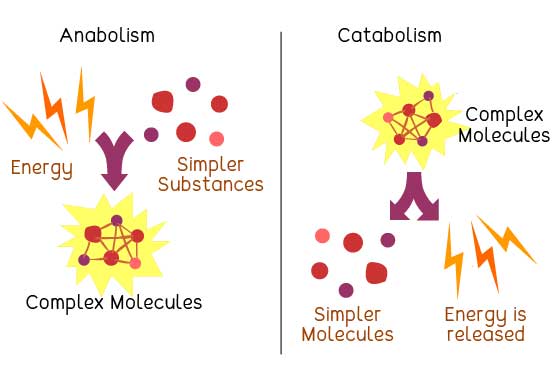- Characteristics of living things
Living things obtain and use energy
Cells cannot survive on their own. They need the energy to stay alive. They need the energy to perform functions such as growth, maintaining balance, repair, reproduction, movement, and defense. This means all living organisms must obtain and use energy to live.
Energy is the power to do things. This power comes in many ways and forms, but they can all be linked back to the sun. It is the source of all energy.
A living organism can either make its food or depend on others to make food for them. For example, green plants produce their food from a process called photosynthesis. They use the chloroplasts in their cells to capture energy in sunlight. They combine it with water and carbon dioxide from the air to produce sugars for themselves. Green plants are therefore known as producers or autotrophs. Bacteria can also make their food or breakdown food.
Other organisms eat green plants (which has a store of the energy they produce) to obtain energy. They are known as consumers or heterotrophs. Rabbits and sheep are examples of consumers. Herbivores, carnivores, and omnivores are all consumers, and they all have to go and find food to give them energy.
The process of obtaining and using energy by living organisms is best explained by three important scientific terms namely: Anabolism, Catabolism, and Metabolism.
Take a look at the illustration below:

Anabolism (constructive anabolism)
This is a process whereby living organisms use simpler substances to put together or build complex substances such as carbohydrates, proteins, and fats for storage. Such activity is known as an anabolic activity.
Catabolism (destructive catabolism)
This is when the cells in living organisms, breakdown complex substances and molecules into simpler substances, often to release energy for use.
Metabolism
This is the sum of all the chemical reactions (anabolic and catabolic activities) that go on in the cells of living organisms. It is a continuous process because the moment metabolism stops, the living organism will die.
